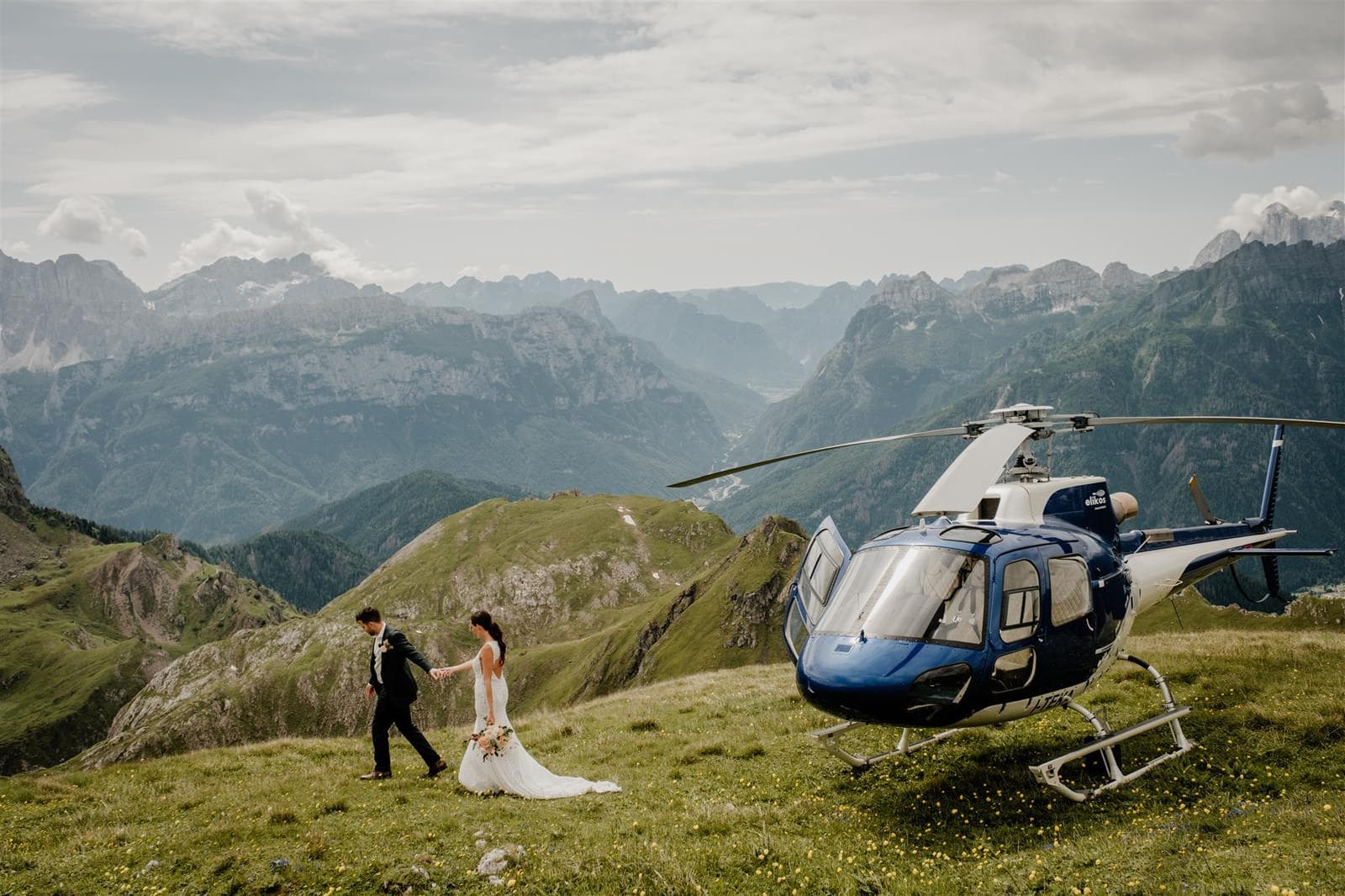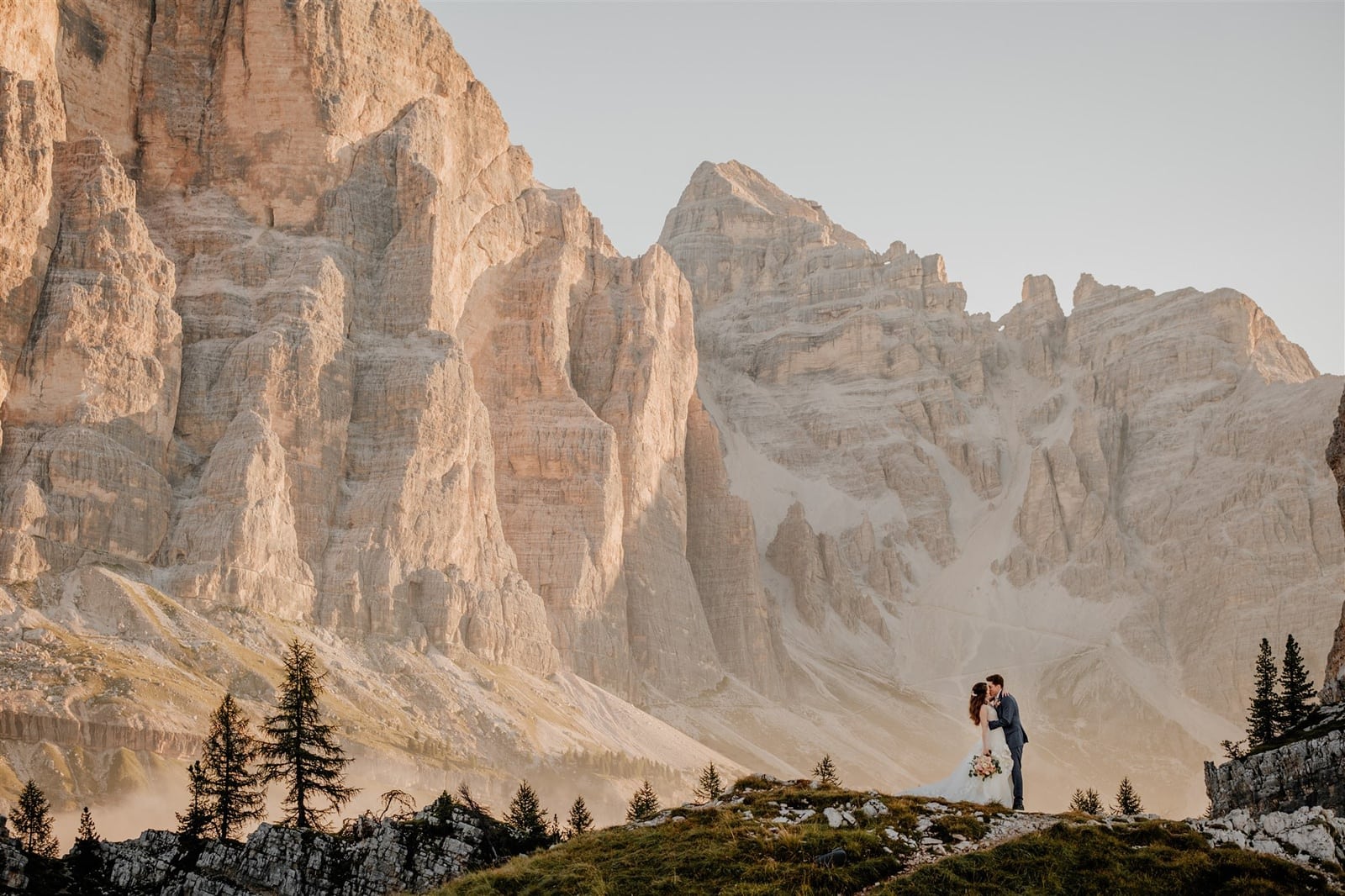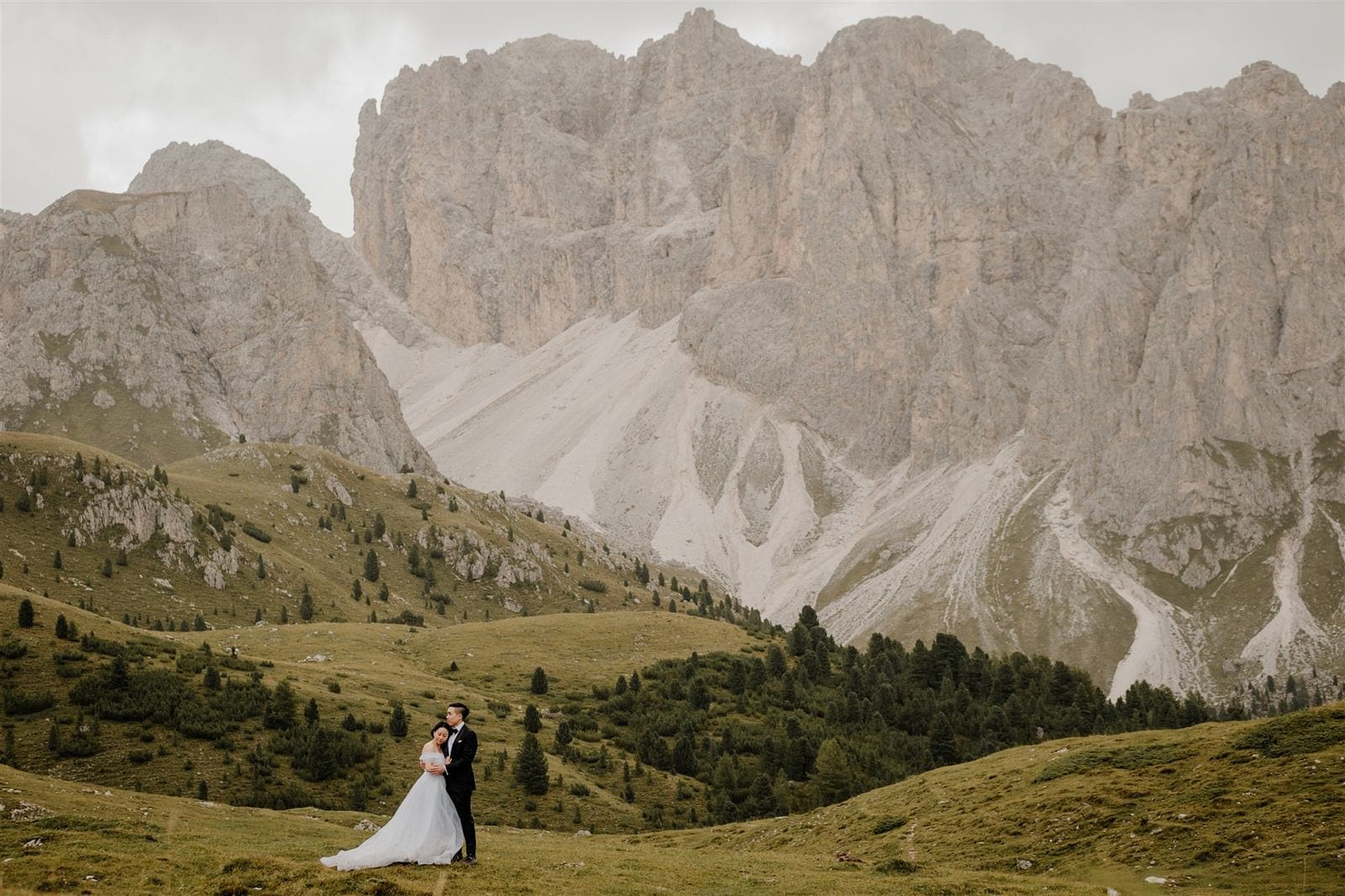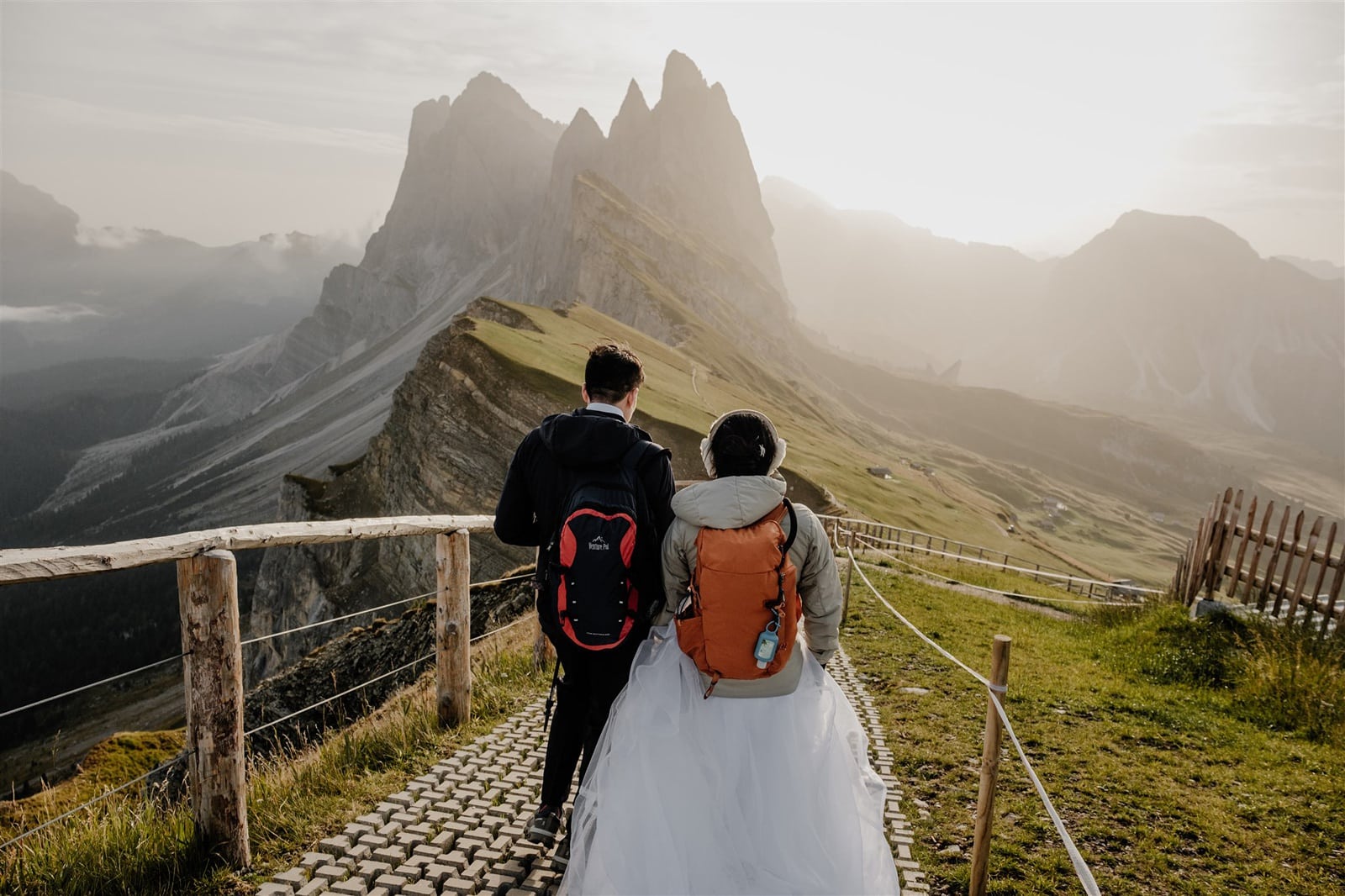Beyond My Lens: Photographer Katie Levine’s Storytelling Podcast, Supported by Narrative
Blog
By Kyle Wilson
Creating a niche in photography isn’t simple, but elopement photographer Cat Ekkelboom-White has the process dialed in. She shoots adventure elopements in the Austrian Alps, on her terms. She talked to Kyle about consciously building a life she loves and how she helps others do the same.
KW: I'd love to hear a little introduction about yourself, where you're based, and your business.
CEW: I am originally from England but have lived in the Austrian Alps outside Innsbruck for over 10 years. Most people know me for being an elopement photographer here in the Alps and the Dolomites. I'm also a hiking guide and used to be a ski instructor, so I do a lot of ski elopement shoots as well. In the last couple of years, I have been certified as a coach and have done quite a bit with other photographers and creators in the education space.

KW: Did you move to Austria for photography, or was there something else?
CEW: I first came to Austria to do a ski season. I trained as a ski and snowboard instructor in NZ and worked winter seasons in Austria and Australia. I met my husband in Austria; he's from the Netherlands and was about to start studying for his master's in Innsbruck. I got into photography after I got married in 2014. I bought a camera and launched a business in about six months.
KW: Your business has overlapped with what you enjoy doing, being outside and in the mountains and skiing. Did it start that way?
CEW: When I first started, it was very traditional weddings which I found stressful. I started blogging about my life and got a destination wedding from a couple who wanted to do a ski wedding. That opened up that world to me. Then I shot my first elopement with this couple who wanted to get married in the mountains. They wanted to hike up to this beautiful little chapel to say their vows to each other and then explore a little bit. It was so nice and relaxing. We drove past a field of sheep, and the bride asked, do you think the farmer would let me go in and meet the sheep? So we knocked on the door, and he let us into the pen with them. It opened my eyes to how you can do things differently. That started to change my thinking.
KW: You started a completely different way and said, I'm going to do this my way. You also coach others - Is your coaching business focused solely on photography?
CEW: I call myself a coach/consultant/mentor. A lot of my clients are photographers but are also multi-passionate entrepreneurs. One of the things that people often come to me for and what I love working on them with is building their own unique niches. Everyone has their own superpowers and their own special sauce they can put into their business; sometimes, things they think could never be combined with photography.
KW: It's a cool concept, people get a little piece of your experience and incorporate that into what they want to accomplish.
CEW: Definitely. I help people formulate their own aligned ways of doing things. It's a wonderful blended approach,
KW: Obviously, everyone you chat with has a really unique perspective. But are there baseline things that you maintain throughout, no matter the client?
CEW: One thing I do with almost every client at some point is work on who their ideal clients are. If we don't know what we're building or who we're building it for, nothing else will work.

KW: Do you think there are any drawbacks to getting too hyper-fixated on the concept of an ideal client?
CEW: Yes, but there is a changing idea of what an ideal client is. For me, an ideal client is an aligned client. It's about the way they see the world around them. It's not just what they do but why they do certain things. That is where the magic is.
KW: Does that overlap with your ability to focus on super-niche clients?
CEW: 100%. If you're not aligned and connecting with the clients you work with, how long are you actually going to want to do this for? My ideal clients are sustainability-conscious, love spending time with the outdoors, and don't really care about Instagram locations. My ideal clients aren't necessarily super fit people, but they enjoy a little bit of suffering. They love that sometimes when I'm hiking, I'm just like, oh God, this is hard, but look at the views.
KW: As you have built your brand and your business, how has it taken shape to get where it is today?
CEW: The niching process wasn't a one-time thing but an ongoing process of looking at my business and seeing what parts I enjoy. During the pandemic, I started removing things that weren't bringing me joy. I stopped shooting destinations because I was concerned about the sustainability aspect. I couldn't justify flying somewhere I wasn't an expert where I'd done some Google research. Because when I work with couples here at home, this is my backyard. I can change plans at the drop of a hat and know whatever we do will be fine. I can give them multiple options and pros and cons of each one.

KW: It's really honoring your client, giving them the best experience possible.
CEW: Exactly. It was putting my ego aside and saying I'm not necessarily the best person. So, I decided I was only going to shoot elopements. And then I realized I hated the shorter days; the couples always wanted to do so much more in the time they had. And if I keep offering this, people will keep booking it.
KW: Spending a day with a couple can be so cool because you share this adventure. It doesn't need to be a strict timeline.
CEW: Exactly. Then there's no pressure. You don't have to worry about the hours. You just do what you want, and I will capture it. So I went right; I'm only offering full days. I also stopped doing engagement shoots, pre-weddings, and honeymoon shoots. I only do elopements. I work in basically a three-hour radius of where I live. My focus, since I've become a certified hiking guide - except for the winter when it's skiing - is on the people who actually just want to go out, just spend the day exploring and getting a bit dirty. If I get any inquiries that don't fit within that, I can refer them to the perfect person for them.
KW: Saying no is empowering.
CEW: So many people struggle when niching because they don't want to turn down clients. But if you're not super excited, that's so unfair to them to have someone who's just a photographer settling for them because it pays the bills. When you say no, you're doing them a service by letting them go to someone so excited to work with them. It gives you the space and energy to be able to say yes to that better thing that is more aligned. I'm pretty sure we've all been there, thinking they're not really an aligned client, but should I say yes? Because who knows what the hell is coming in the future kind of thing … as soon as you do it, there's a gut feeling that doesn't feel good. Then, the perfect inquiry comes in for the same day.

KW: I've had so many of those, and it breaks my heart every time. It's always the next day you get a call saying hey, do you want to come to the south of France and drive around with us for a week?
CEW: When I say I wish I hadn't taken it, it's not because they're not wonderful people. It's just because they weren't aligned with me and how I love to work and work best. It wasn't in either of our best interests to work together. Saying no has taken so much practice. Having my coach has helped me do a lot of work around dealing with the fear of saying no. The more you do it, the more empowering it feels, and you realize you can say no and have a choice.
KW: Are there things that you find yourself fine-tuning and tweaking along the way?
CEW: I am constantly evaluating, changing, and tweaking things. Some things on my mind are sustainability within our industry while working in an area like the Dolomites, which is becoming the hottest destination for photographers, and seeing the overcrowding. This is my home and the main area where I work, but I don't want to be another person contributing to the destruction of these places.
KW: What do you think you're going to do about that?
CEW: I'm becoming more vocal about why sustainability matters and why working with locals matters. As an example, I had messages from a bride panicking because they had an elopement in the Dolomites, and the location the photographer chose was covered in snow. It's inaccessible. Could I help them with their backups? And I said if you've got a local photographer, they've got your back, and you'll be fine. Their photographer was from Arizona. That puts me in a difficult spot. I've had issues with other photographers laughing it off, like, 'I was in that location with couples last year when it had snowed heavily, and it felt really, really dangerous.' Yeah, it was! As much as I think you're wonderful photographers, you're not experienced mountain people, and just because locations are easily accessible doesn't mean that you don't need any knowledge of the outdoors to be there. I just keep hearing so many alarm bells. I don't want to stop shooting there because this is my home. But overcrowding is a problem. Over-tourism is a problem. If you're working here, please work with locals, because we know these areas. It's about keeping people safe so they can have a fun experience.
KW: Is this something you speak about on your blog or podcast?
CEW: I am vocal about this on my podcast, also how to build and run your business with integrity. I've started to create content on my education blog around it, with actionable steps.
KW: I haven't chatted with anyone else in the series or in my professional career that is so entrenched in these specific topics that we're talking about today. We'll share all the links in the description so people can learn more about this. Thanks for taking the time to chat today.
CEW: I've really loved it.
Learn more about Cat’s many business projects at catekkelboomwhite.com and see what else she gets up to on her Instagram @catekkelboomwhite.
This interview has been edited and condensed. Check out “The Photographer’s Problem: A Narrative Podcast” streaming now on YouTube or Spotify for the full, unedited interview and more inspiring stories and an immersive look into the intricate world of photography.